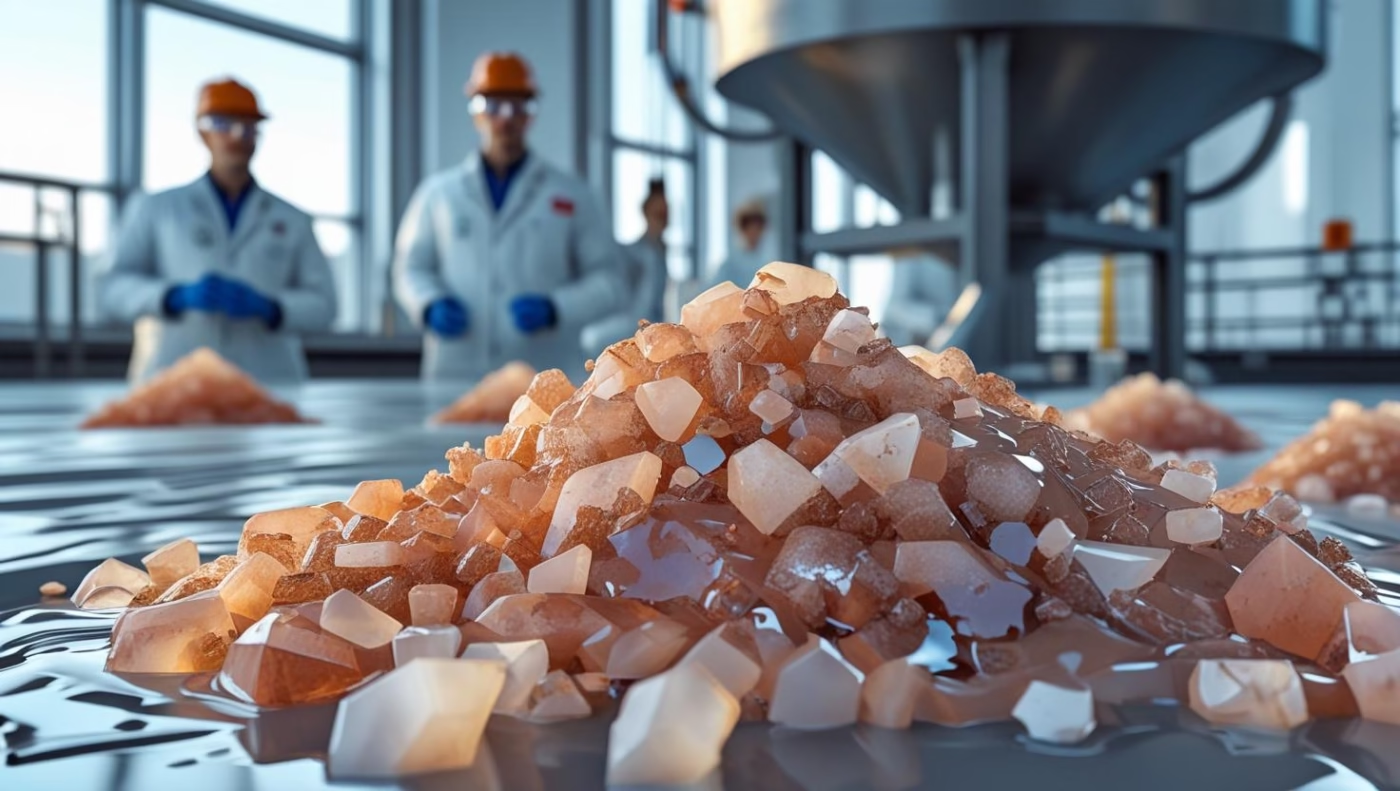Introduction to Polymer Concrete Resins
Polymer concrete resins have gained prominence as high-performance alternatives to traditional cement-based concrete, especially for Fiber Reinforced Polymer (FRP) companies seeking lightweight, corrosion-resistant, and long-lasting structural solutions.
Unlike ordinary concrete, which uses Portland cement as a binder, polymer concrete employs synthetic resins—commonly epoxy, polyester, or vinyl ester—to bond mineral aggregates. This results in superior mechanical strength, low permeability, and excellent chemical resistance.
According to MarketsandMarkets (2024), the polymer concrete market is projected to grow from USD 580 million in 2023 to USD 820 million by 2030, at a CAGR of 7.2%, with FRP and composite manufacturing being a significant growth driver.
Defining Polymer Concrete Resins
Polymer concrete is a composite material formed by replacing cement entirely with a polymeric binder. This binder encapsulates aggregates, forming a dense, impermeable matrix.
Key features include:
- Low porosity — less than 0.5% water absorption.
- High tensile and compressive strength — often more than double that of traditional concrete.
- Fast curing times — allows rapid production cycles in FRP component manufacturing.
Evolution of Polymer Concrete in Industrial Applications
The first commercial use of polymer concrete emerged in the 1950s for acid-resistant flooring. By the 1970s, marine and chemical processing industries began using it for corrosion-prone environments.
Today, FRP companies incorporate polymer concrete into:
- Structural panels
- Cable trays and electrical housings
- Bridge overlays with FRP reinforcement
- Offshore and marine protective shells
A 2023 FRP industry survey showed 60% of composite manufacturers use polymer concrete in at least one product line.
Chemical Composition and Material Science
Resin Types Used in Polymer Concrete
- Epoxy Resins
- Outstanding adhesion to aggregates and FRP laminates.
- High chemical resistance to solvents and acids.
- Used in bridge overlays, industrial flooring, and chemical tanks.
- Polyester Resins
- Cost-effective with moderate resistance.
- Suitable for non-structural or light-duty components.
- Vinyl Ester Resins
- Combines durability of epoxy with lower cost.
- Superior resistance to acids and alkalis.
Role of Aggregates and Fillers
- Aggregates: quartz, basalt, granite for structural strength.
- Fillers: silica flour, fly ash to improve packing and reduce shrinkage.
Studies show quartz-filled epoxy polymer concrete can have 40% higher compressive strength than cement concrete (Journal of Materials in Civil Engineering, 2022).
Mechanical and Physical Properties
- Compressive Strength: 80–120 MPa vs. 25–40 MPa for cement concrete.
- Flexural Strength: 18–40 MPa vs. 3–7 MPa.
- Tensile Strength: 8–18 MPa vs. 1–4 MPa.
- Water Absorption: <0.5% vs. 3–8%.
These properties make polymer concrete ideal for FRP bonding, where high strength and low moisture ingress are critical.
Manufacturing Process of Polymer Concrete Resins
- Mixing Ratios
- 10–20% resin by weight.
- Epoxy mixes: 15% resin : 85% aggregate for structural use.
- Curing
- Ambient curing: 24–48 hours.
- Heat-assisted curing: <12 hours to full strength.
- Quality Control
- Resin viscosity checks.
- Aggregate moisture control.
- Mechanical testing (ASTM C579).
Advantages Over Conventional Concrete for FRP Companies
- Lightweight & High Strength — enables thinner FRP assemblies.
- Corrosion Resistance — withstands marine, wastewater, and chemical environments.
- Durability — service life of 30–50+ years with minimal degradation.
Industrial Applications in FRP Manufacturing
- Infrastructure: bridge deck overlays, tunnel linings.
- Marine: sea walls, offshore platform decks.
- Electrical/Chemical: battery storage flooring, cable trays.
Case Studies and Industry Statistics
- Asia-Pacific: 45% of global polymer concrete use due to rapid infrastructure expansion.
- Lifecycle Cost: 25–40% higher initial cost, but up to 60% lower maintenance over 20 years.
Environmental and Sustainability Considerations
- Use of industrial by-products like fly ash reduces waste.
- Life cycle analysis shows 30–40% lower CO₂ emissions over structure lifespan.
Challenges and Limitations
- Temperature Sensitivity — some resins soften above 80°C.
- Cost & Availability — dependent on resin supply chain stability.
Future Developments and Innovations
- Nanomaterial Integration — improves crack resistance.
- Self-Healing Systems — embedded resin microcapsules for automatic crack repair.
Statistical Performance Comparison Table
| Property | Polymer Concrete | Traditional Concrete | Impact for FRP |
|---|---|---|---|
| Compressive Strength | 80–120 MPa | 25–40 MPa | Higher load capacity |
| Flexural Strength | 18–40 MPa | 3–7 MPa | Crack resistance |
| Tensile Strength | 8–18 MPa | 1–4 MPa | Bond integrity |
| Density | 1.7–2.2 g/cm³ | 2.2–2.5 g/cm³ | Lighter structures |
| Water Absorption | <0.5% | 3–8% | Moisture barrier |
| Chemical Resistance | High | Low–Moderate | Corrosion protection |
Frequently Asked Questions (FAQ)
1. Why is polymer concrete preferred for FRP applications?
It offers superior bonding, chemical resistance, and durability in aggressive environments.
2. Can polymer concrete be used in marine FRP projects?
Yes — its low permeability and saltwater resistance make it ideal.
3. How does cost compare?
It’s 25–40% more expensive initially but reduces lifecycle maintenance costs.
4. Which resin is best for chemical resistance?
Epoxy and vinyl ester resins offer the highest chemical resistance.
5. Is it recyclable?
Yes, especially when using recycled aggregates.
6. Does it require special curing?
Some systems cure at ambient temperature, others benefit from heat curing.
Conclusion
For FRP companies, polymer concrete resins provide unmatched strength, durability, and resistance to corrosive environments. While the upfront investment is higher, the long-term performance, reduced maintenance costs, and sustainability benefits make it a future-proof choice. With ongoing advancements like nanotechnology and self-healing systems, polymer concrete is set to become even more integral in composite infrastructure and manufacturing.
Reference:
COMPANY INFO
Website: www.crestresins.com
Phone: +91 9879233188
Email: enquiry@crestresins.com
Address: 605/A, 6th Floor, Tower D, Times Square Grand Office, Sindhubhavan Marg, Near Taj Hotel, Ahmedabad, Gujarat - 380059

